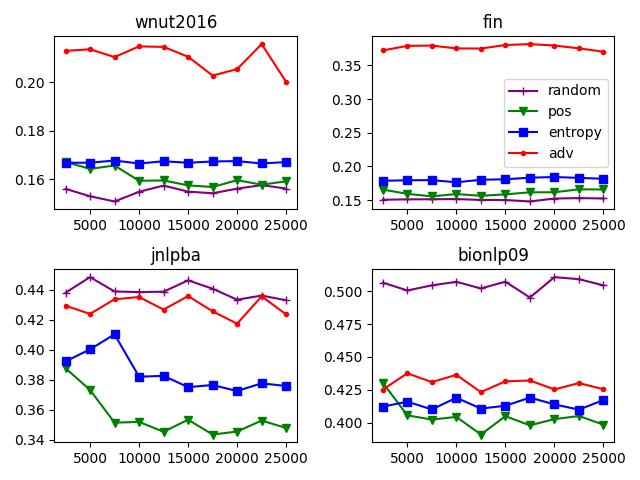Avoiding the Hypothesis-Only Bias in Natural Language Inference via Ensemble Adversarial Training
Joe Stacey, Pasquale Minervini, Haim Dubossarsky, Sebastian Riedel, Tim Rocktäschel
Interpretability and Analysis of Models for NLP Long Paper

You can open the pre-recorded video in a separate window.
Abstract:
Natural Language Inference (NLI) datasets contain annotation artefacts resulting in spurious correlations between the natural language utterances and their respective entailment classes. These artefacts are exploited by neural networks even when only considering the hypothesis and ignoring the premise, leading to unwanted biases. Belinkov et al. (2019b) proposed tackling this problem via adversarial training, but this can lead to learned sentence representations that still suffer from the same biases. We show that the bias can be reduced in the sentence representations by using an ensemble of adversaries, encouraging the model to jointly decrease the accuracy of these different adversaries while fitting the data. This approach produces more robust NLI models, outperforming previous de-biasing efforts when generalised to 12 other NLI datasets (Belinkov et al., 2019a; Mahabadi et al., 2020). In addition, we find that the optimal number of adversarial classifiers depends on the dimensionality of the sentence representations, with larger sentence representations being more difficult to de-bias while benefiting from using a greater number of adversaries.
NOTE: Video may display a random order of authors.
Correct author list is at the top of this page.
Connected Papers in EMNLP2020
Similar Papers
Beat the AI: Investigating Adversarial Human Annotation for Reading Comprehension
Max Bartolo, Alastair Roberts, Johannes Welbl, Sebastian Riedel, Pontus Stenetorp,

Effective Unsupervised Domain Adaptation with Adversarially Trained Language Models
Thuy-Trang Vu, Dinh Phung, Gholamreza Haffari,

Discriminatively-Tuned Generative Classifiers for Robust Natural Language Inference
Xiaoan Ding, Tianyu Liu, Baobao Chang, Zhifang Sui, Kevin Gimpel,

